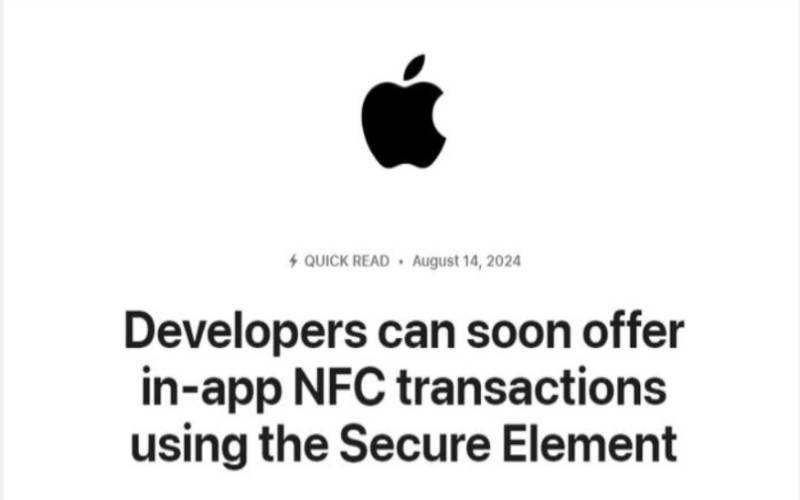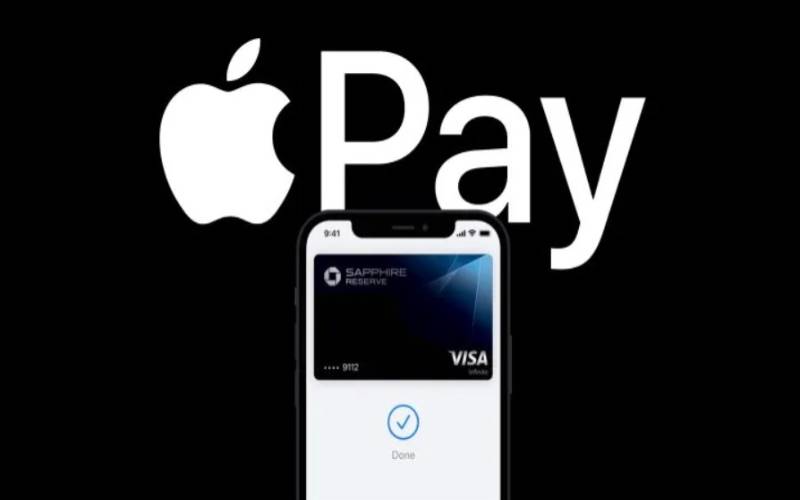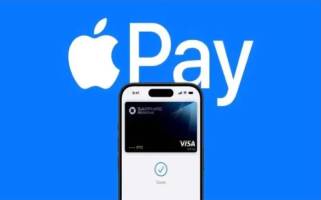Apple Inc. announced on its official website on August 14th that it will open up the iPhone’s NFC chip, allowing third-party applications to make contactless payments. This decision marks a further opening up of Apple in the field of payments, bringing new convenience and opportunities for users and developers.

NFC, or Near Field Communication, allows devices to exchange data over short distances. Since the iPhone 6 series in 2014, Apple has integrated NFC capabilities but primarily for its own Apple Pay and Apple Wallet services.Apple emphasizes that user safety and privacy remain paramount despite opening up the NFC chip. The new solution will utilize proprietary Apple hardware and software technologies, including the Secure Enclave and biometric authentication.
The new NFC and SE (Secure Element) APIs will enable developers to implement contactless data exchange within their apps, which can be used for various scenarios, such as in-store payments, car keys, closed-loop public transport, corporate badges, student IDs, home keys, hotel keys, merchant loyalty and reward cards, and event tickets. In the future, this technology will also support identity documents. This feature will first be available in the beta version of iOS 18.1, initially for developers in Australia, Brazil, Canada, Japan, New Zealand, the UK, and the USA. Apple plans to support more regions in the future.
Benefits for Consumers:
- Consumers will enjoy a variety of mobile payment options and the convenience of using their phones as multifunctional smart devices.
- With a double-click of the iPhone’s side button, third-party payment systems can be quickly invoked, streamlining the payment process.
Opportunities for Developers:
- Developers can explore innovative NFC applications, such as personalized payment solutions and smart lock integration.
- By entering into a commercial agreement with Apple, developers will gain access to the NFC system, opening new market and revenue opportunities.

Apple’s NFC opening strategy is not only a response to the EU’s antitrust regulations but also a proactive adaptation to the needs of consumers and developers worldwide. This marks an important step for Apple in promoting technological innovation and enhancing user experience. We look forward to this change bringing more innovation and convenience, while maintaining high standards of security and user privacy protection.
